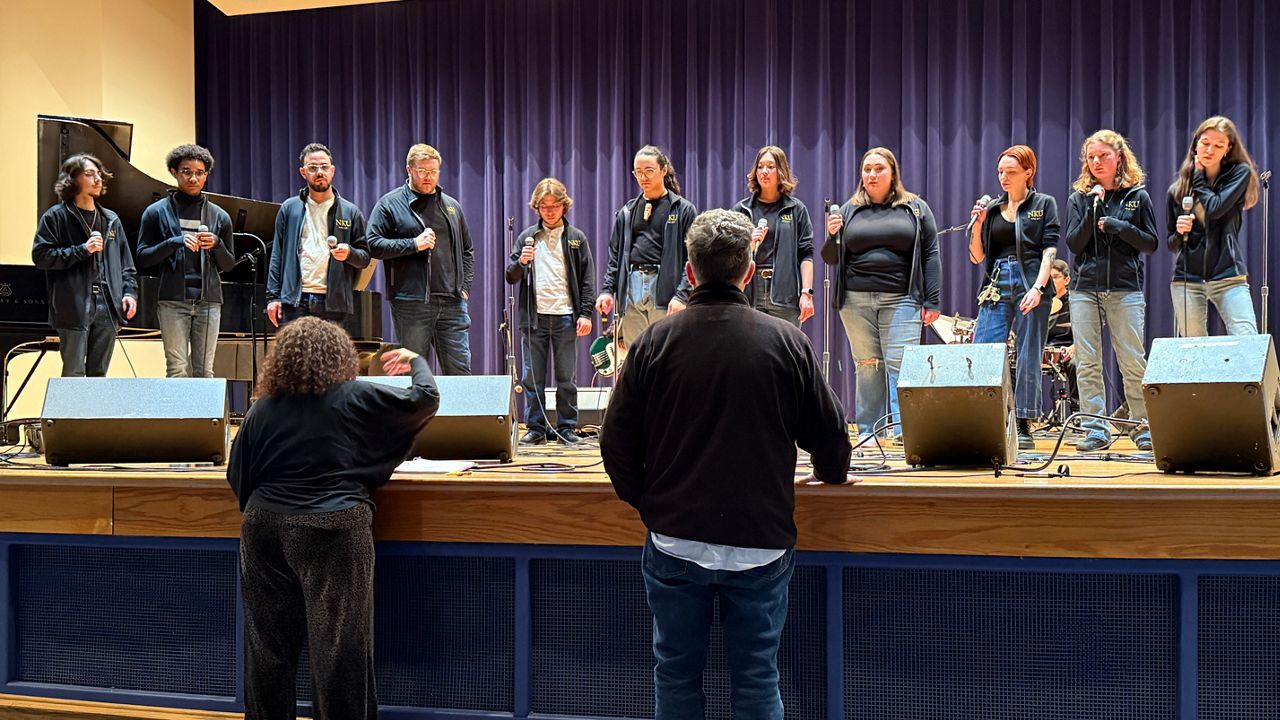HIGHLAND HEIGHTS, Ky. — The development of artificial intelligence systems is progressing at an exponential rate.
In 2024, people can expect AI to become more of a part of their everyday lives than it already is, according to one professor at Northern Kentucky University. He says a project his students worked on shows the positive potential of the technology.
During segregation, the South Gate Street School in Newport was the only school around that provided African American students with the opportunity of education.
NKU students recently embarked on a project to document that history, but there weren’t that many images from the time to use.
The pictures in the book students put together are completely A.I. generated, based on accounts from old students.
“When we showed it to former alums of the school, some of them looked at the images and were like, oh, I recognize this person, this is my teacher, and they had a really emotional moment,” said Nicholas Caporusso, Associate Professor for the NKU School of Computing and Analytics
The project also included a podcast, which was also completely A.I. generated, down to the voice, based on a summary of the book.
Caporusso said these are positive examples of how far A.I. has progressed, and the kinds of things people can expect to see more of in 2024.
He said people are living in what he described as a singularity.
“This moment in humanity where we witness the beginning of a super intelligence that’s way smarter than humans, that can produce content at a pace that humans cannot consume,” Caporusso said. “The scale of this, I think it’s still being overlooked by many. Because we still don’t understand how ai works. The very nature of ai is in a way obscure. In the sense that we don’t know how AI systems reason. Even the people who develop them are trying to implement solutions or systems to basically gauge the AI’s brain, which is a big mystery.”
He said he believes 2024 will see major advancements.
“We will see more and more AI applications integrated into every single facet of our existence. We will see, definitely, jobs being transformed or completely replaced by AI. Maybe even my job as a professor will be complemented or completely substituted by an AI system,” Caporusso said.
That’s a scary proposition to a lot of people.
Caporusso, who has researched AI for years, said it’s growing exponentially, and people need to adapt along with it, but not become dependent on it as they have with other technologies.
“And so, in a way, we’ve become a little dumber. We’ve given up some of our brain power,” he said. “Now, if we apply the same concept to AI, given that it can completely replace the way we talk and speak, the implications are pretty significant.”
The ability to create images and news that are indistinguishable from reality is here. And the more powerful it becomes, the more responsibility people have, Caporusso said, to use it properly.
“AI is going to produce decisions based on what it’s trained with. If we train AI to be an angry text generation system, we will get angry text,” he said. “As long as we don’t use AI to make too big of decisions, we’ll definitely be able to maintain the control.”
Overall, Caporusso said he thinks all the good will outweigh the bad. But education will play a key role in that.
Caporusso said one thing that excites him most about AI is health care applications. He said it will cut down costs, improve quality of service and significantly cut down on the time required to process records.










